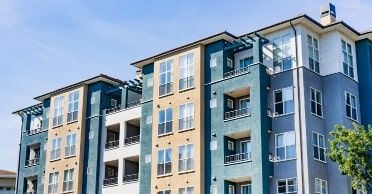Protecting Multi-Dwelling Unit Web Traffic Via Robust Cryptographic Standards to Protect User Confidentiality as well as Information Accuracy
Protecting Multi-Dwelling Unit Web Traffic Via Robust Cryptographic Standards to Protect User Confidentiality as well as Information Accuracy
Blog Article
In today’s digital landscape, protecting internet data is more crucial than ever, particularly in Multi-Dwelling Units (MDUs) such as apartment complexes and condominiums settings. These environments frequently have numerous tenants sharing the identical internet service, which can lead to possible security threats. To ensure that residents' privacy and information integrity are maintained, it is vital to implement strong coding protocols. Data encryption is a method that encodes data, rendering it unreadable to individuals who do not have the correct credentials to decode it. This process aids keep personal data safe from cybercriminals and unauthorized access.
One of the most commonly used coding protocols is SSL Sockets Layer (SSL) and its successor, TLS Security (TLS). These standards establish a protected connection between a user’s system and the internet, ensuring that any data transferred remains private. When tenants in an MDU access websites that employ SSL/TLS, their private data, including login credentials and credit billing details, is secured. This means that although when someone attempts to intercept the data, they would only see a mess of characters and numbers, making it almost impossible to understand. By promoting the use of these protocols, MDUs can significantly improve the safety of their residents' internet actions.
Another important coding technique is VPN Private Network (VPN) technology. A VPN establishes a secure pathway for web traffic, which protects users from invasive observers, particularly when accessing shared wireless connections. In an MDU, in which numerous residents may connect to the same service, employing a VPN can assist ensure that individual web activities stay private. This is especially important for tasks such as online transactions or retrieving confidential data. By More Info encouraging the use of VPNs among residents, MDUs can foster a more secure online environment and help safeguard against information leaks.
Alongside such coding techniques, it is vital for MDUs to educate their residents about the importance of online security. Numerous individuals may not be conscious of the risks associated with utilizing common web connections. Providing resources on how to identify phishing attempts, the importance of robust credentials, and the advantages of employing secure websites can empower tenants to assume control of their online security. Seminars or informational sessions can be beneficial ways to increase awareness and encourage optimal habits for internet safety.
Ultimately, MDUs should consider working with internet provider companies (ISPs) that emphasize security and offer enhanced coding options. By partnering with ISPs that utilize robust encryption protocols, MDUs can guarantee that their tenants have availability to protected internet services. This partnership can lead to enhanced general security for the entire complex, as well as enhanced trust among tenants. By implementing these steps, MDUs can establish a more secure online environment, safeguarding user privacy and information integrity in an increasingly connected environment.